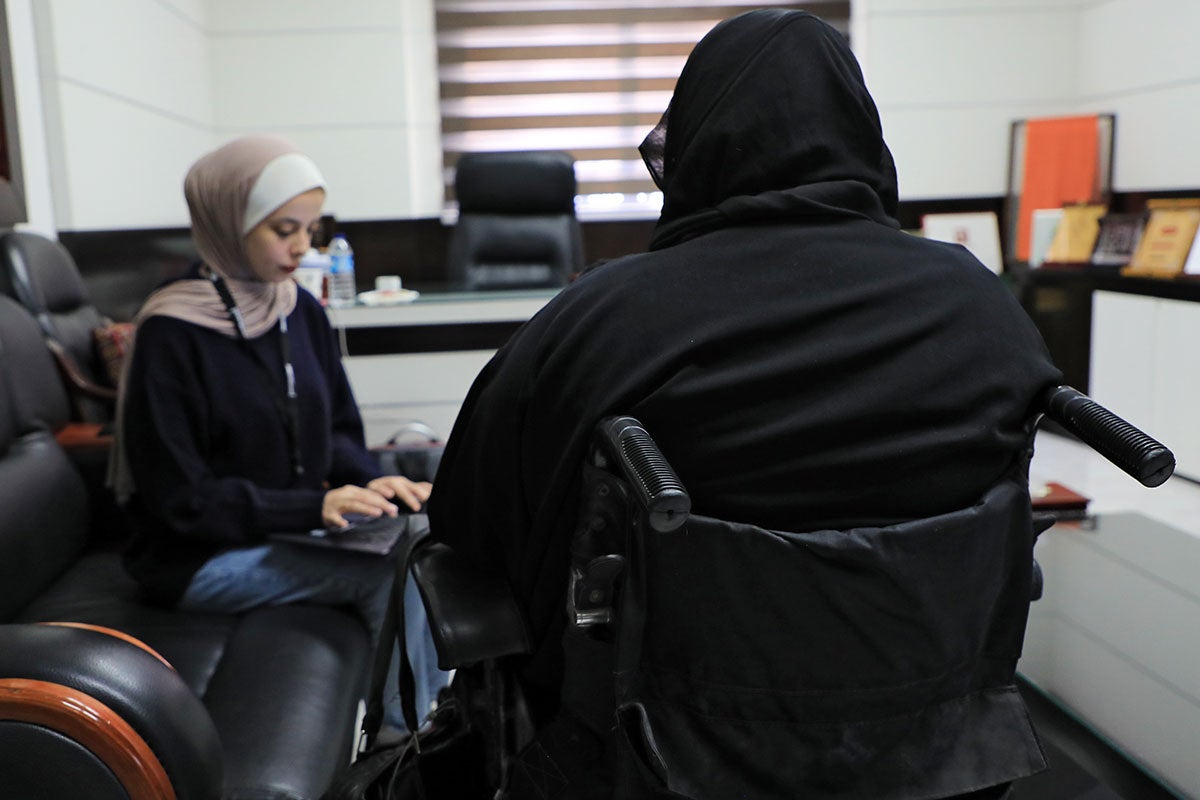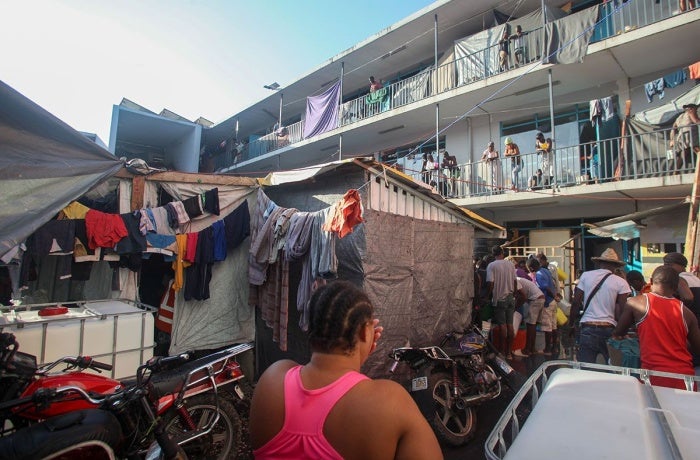Giving a voice to gender-based violence survivors in Palestine
Decades of occupation and conflict have jeopardized women’s economic security, protection, and access to services in Palestine. Women and girls far too often face physical violence and sexual harassment, which occurs in the streets, workplaces, homes, and refugee camps. Nearly 1.9 million in Palestine currently need gender-based violence (GBV)–related services and interventions, 65 per cent of whom live in Gaza. GBV victims also suffer from limited access to justice due to the weak, fragile, and inactive legal system.
According to Abdelrahman Elassouli, Programme Manager for UN Women in Palestine, ending GBV is difficult in a traditional patriarchal community, especially one that is also under military occupation. Outdated and discriminatory laws often hinder survivors of violence from accessing gender-responsive services and obtaining justice—a problem compounded by fear and distrust of outsiders. Additionally, only 21 per cent of individuals surveyed in Gaza and 4.2 per cent in the West Bank reported an understanding of reporting channels for GBV.

That is where local women-led and women’s rights organizations come in, Elassouli says, as they can reach survivors and those at risk of GBV who might be hesitant to speak to foreign aid workers.
“Women’s organizations are deeply trusted within their communities, particularly when handling sensitive matters such as reporting instances of GBV and providing support”, says Elassouli. “This is vital, as these issues can be stigmatizing for GBV survivors and their families. These organizations also play a crucial role in challenging and changing societal norms, like stigma and male dominance, which perpetuate gender inequality and violence against women and girls.”
UN Women has worked with local partners in Palestine for more than a decade, he adds, but a grant from the Central Emergency Relief Fund (CERF) has provided critical recognition for their work, especially since many local women-led and women’s rights organizations are often overlooked by international donors.
Although women-led and women’s rights organizations are the first responders in times of crisis and emergencies, “funds allocated to these organizations are still extremely limited, which makes it difficult to respond as needed”, says Amal Seyam, Head of the Women’s Affairs Center in Gaza, which was a partner for the CERF grant. “Key actors in the humanitarian community are not always aware of the added value of the women’s organizations in terms of humanitarian response and fulfilling the needs of women and girls.”
In the West Bank and Gaza, UN Women and its four implementing partners—all local women-led and women’s rights organizations—provided health, legal, and psychosocial services, as well as cash-for-work and livelihood opportunities for vulnerable groups of women and girls that are also affected by the crisis, including survivors of violence. Since 2021, the GBV-related service reached 17,099 GBV survivors and women at risk, and 772 vulnerable women further benefitted from the livelihood support including cash transfer.
In turn, UN Women has focused on increasing the leadership of these organizations in the humanitarian architecture, ensuring their inclusion in cluster groups and other decision-making spaces.
“Through projects like CERF, we want to encourage and finance women’s organizations to engage more in the humanitarian portfolio,” says Elassouli. “They ensure our humanitarian action is gender-responsive. They can accomplish what other partners cannot.”









